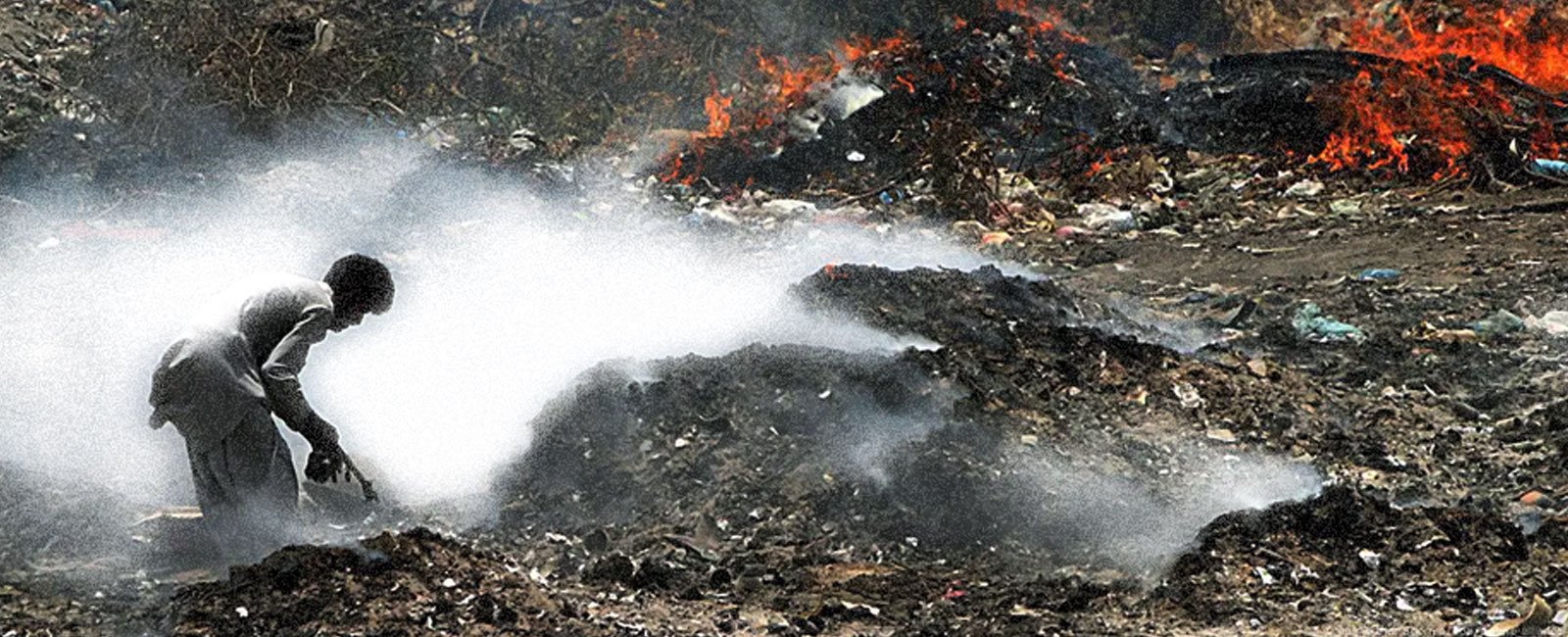From deforestation to trash piles: How Pakistan's eco-unfriendly habits are hurting nation?

Self-inflicted atmospheric suffering is not new to Pakistan, as every living being here is, and has been, bound to endure a certain degree of environmental issues hurled their way.
For the uninitiated, straining to make sense of what I referred to as "made-up suffering" in the context being discussed, it simply means willingly doing anything you know will result in grave repercussions.
This suffering stems either from state-backed, forceful anti-greening and deforestation drives or from garbage dumps in residential areas being overlooked, resulting in ever-growing mountains of trash.
This brief articulation of the environmental woes of Pakistanis is intended to reflect less on the causes beyond people's control and more on those that are the result of people's own, wilfully committed evils.
However, the dwellers of this developing country should be spared the blame for these eco-hostile acts, as they are driven by people's illiteracy and lack of awareness regarding the dos and don'ts for the ecosystem.
Due to unchecked and hazardous industrialisation, the en masse damage to the atmospheric dynamics preset by Mother Nature has long been a distressing norm in Pakistan.
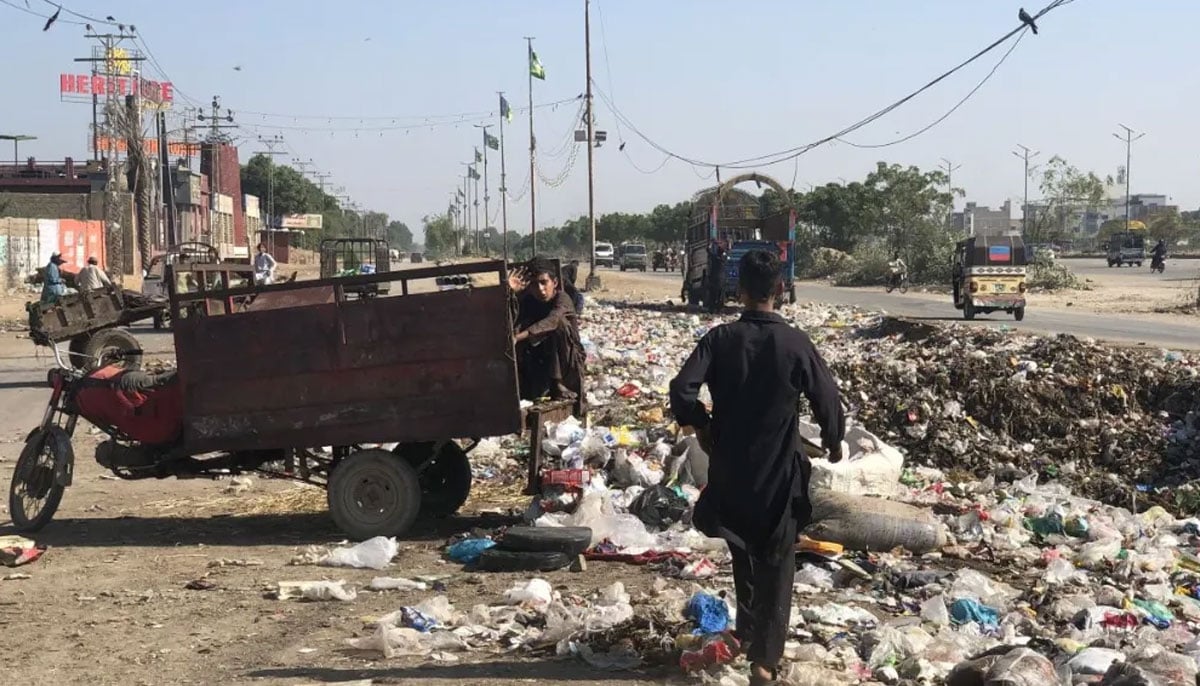
Titled “Combined Role of Industrialisation and Urbanisation in Determining Carbon Neutrality: Empirical Story of Pakistan,” a research paper published in PubMed — a free platform for accessing biomedical literature — states that the rapid growth of industrial activities, especially in urban areas, has contributed significantly to environmental degradation.
The research adds that industrialisation, combined with urbanisation, has led to increased CO2 emissions, and urbanisation and foreign direct investment have been identified as significant drivers of CO2 emissions in the country, contributing to environmental challenges.
However, garbage burning — and other similar acts — done on an individual scale to harm the environment also does not fall short of polluting the air to an unfathomable extent. This harm inflicted on the environment may seem nominal due to being carried out by individuals, but when performed regularly at every nook and corner across the country, it collectively adds to the already-swamped account of Pakistan's environmental woes.
The individuals in question are not ordinary people, but local street vendors and roadside hawkers who are accustomed to cleaning the surroundings of their stalls, accumulating waste, and burning it.
“The stall is the source of our bread. What are we supposed to do when no one comes to take the garbage we clear from our surroundings to its designated place?” decried Murtaza, a local fruit seller in North Karachi.
Neither having a slight clue about climate change and global warming nor being aware of the damage garbage burning does to the environment, Mohammad Amir, another shop owner, stated: “All of us street vendors once collectively hired a sweeper who would collect all the waste and take it to a dumping site.”
“Since it was too costly for daily wage earners like us, we resorted to collecting and burning it ourselves,” he added.
Being an evil cloaked in goodwill, this sort of cleaning has brought Pakistanis closer to an environmental catastrophe than to something an ordinary Pakistani may take pride in.
Not only does garbage burning lead to environmental degradation, but it also takes a toll on public health.
The alarming rise in this practice stems not only from local shop owners and street vendors burning garbage but also from a lack of awareness about its hazards.
Dr Muhammad Farrakh Nawaz, director of the Institute of Environmental Studies at the University of Karachi, explained in an interview with Geo.tv "why this issue remains a persistent challenge in the urban landscape."
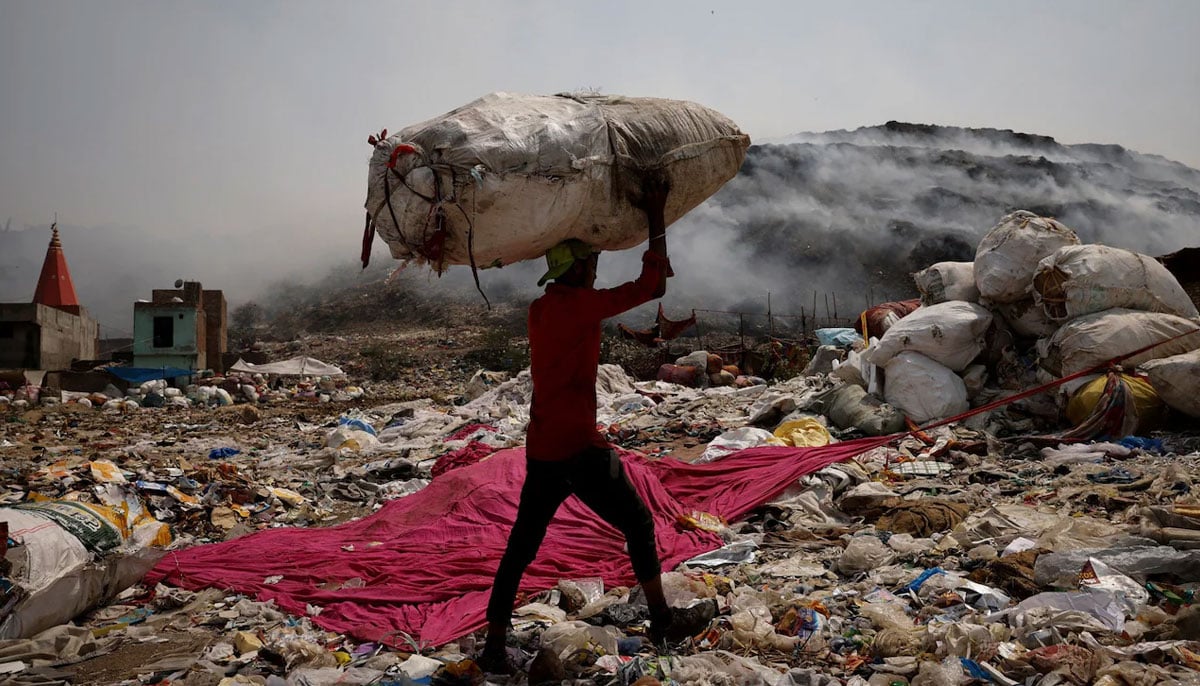
“When local business owners are faced with mounds of garbage accumulating in their areas and not being regularly cleared, they are left with only one solution in sight: burning it to ashes,” he said.
This, he added, could be attributed to the failings of institutions responsible for overseeing municipal matters.
SSWMB Managing Director (MD) Syed Imtiaz Ali Shah, on the contrary, mentioned that the government body was working towards keeping the city clean under an “organised and well-structured system.”
“I must respectfully disagree. Across the city, garbage is being collected regularly and disposed of through an organised and well-structured system. The SSWMB (Sindh Solid Waste Management Board) has its teams deployed across every area under its jurisdiction,” the official said.
Dr Nawaz noted that while vendors and local shop owners often resort to burning garbage due to a lack of alternatives, the general public was also largely unaware of the hazardous effects of this practice.
With the problem persisting due to inadequate waste management infrastructure, low awareness, and the widespread use of plastics in everyday life, an urgent yet practical solution that can be easily implemented by the general public is essential.
As it stands, the more important and worrisome issue is the advocacy and enforcement of such a practice, which would oblige the public, especially local shop owners and street vendors, to abide by it.
Community projects raising awareness
A recent government-supported project to revive Pakistan Chowk — a renowned locality in the vicinity of Saddar — was led by prominent architect and heritage consultant Marvi Mazhar. The project turned a trash-littered area — used as a dumping spot by residents and local market vendors — into the neat and clean Pakistan Chowk Community Centre (PCCC), a public space surrounded by architectural marvels.
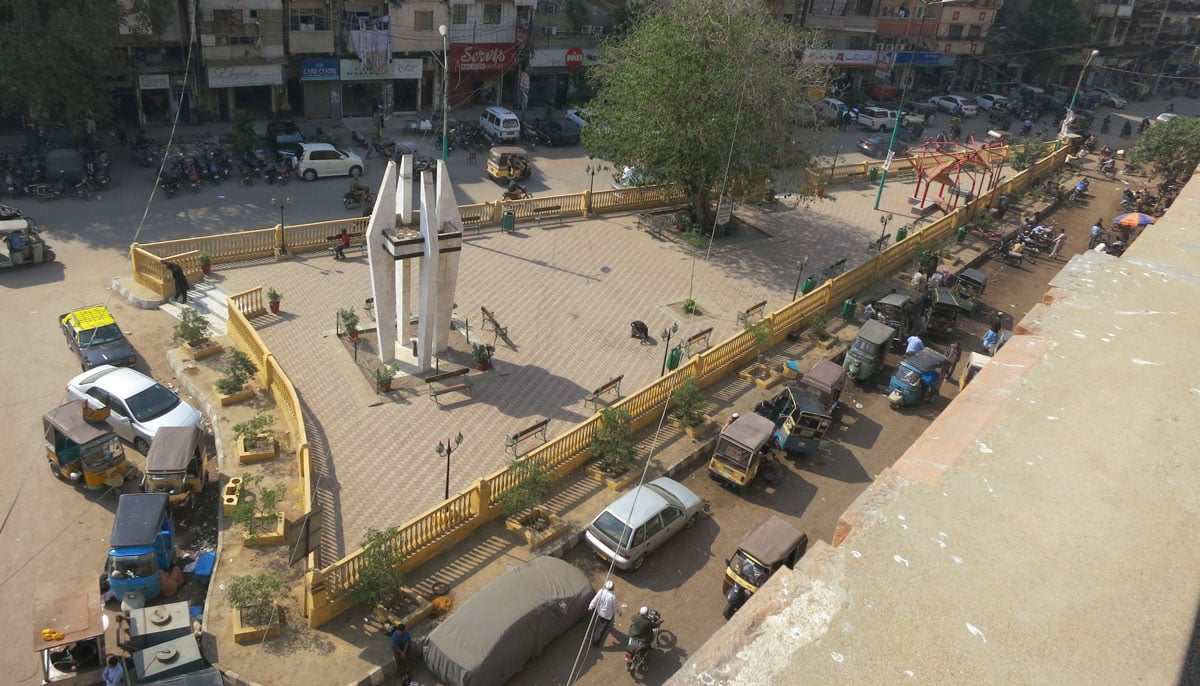
PCCC is also known for initiating the Heritage Walk Karachi in the surrounding neighbourhood. Since the project was unattainable without government backing, it could not be sustained.
When inquired by Geo.tv, the environmentalist disclosed that despite institutions like the Sindh Solid Waste Management Board’s (SSWMB) disregard for her cause, she managed to transform the place on her own.
Contrary to Marvi Mazhar’s claim that SSWMB is responsible for cleaning parks and places like Pakistan Chowk, Imtiaz Ali Shah said: “Regarding Pakistan Chowk and other parks, these spaces fall under the jurisdiction of the KMC (Karachi Metropolitan Corporation). The SSWMB is responsible for waste collection from homes and streets up to the main roads.”
For a brief period, after battling institutional apathy and indifference, the PCCC thrived as a centre for learning and research on Karachi’s rich heritage.
Waste management infrastructure
Lamenting the authorities’ indifference to Pakistan’s worsening climate crisis, Marvi Mazhar suggested a framework based on three stages, which she believes would greatly improve Pakistan’s waste management system. This framework involves education, mapping, and waste segregation.
Education: “Government-backed educational campaigns should be launched to inform the masses about the consequences of improper waste disposal and how they can play a role,” she said. She added that such campaigns, launched on a broader scale, could play a pivotal role in informing the public about the dangers of burning garbage while advocating sustainable alternatives and participation in waste reduction efforts.
Mapping: “Designated trash dumping spots in every locality should be marked from where institutions can lift the heaps of garbage.”
Waste Segregation: Waste segregation is the process of collecting different types of waste separately so they can be repurposed. By implementing waste segregation, the government could also generate significant revenue for the national exchequer.
In addition to outlining a framework for the country’s waste management system, she emphasised that regulations should be enforced to prohibit the open burning of garbage, with fines and penalties for those who violate the rules.
‘Reduce, reuse, recycle’
According to Nawaz, the 3 R concept (reduce, reuse, and recycle) needs to be employed for environmental improvement. He described the framework as aimed at minimising waste and conserving resources.
Reduce focuses on lowering waste generation by consuming less and choosing products with minimal packaging. It encourages efficiency and conscious consumption.
Reuse promotes extending the life of products by repurposing or repairing them instead of discarding them.
Recycling involves processing used materials into new products, conserving natural resources, and reducing landfill waste. Together, these actions help lower environmental impact, conserve resources, and foster a sustainable future.
Release of hazardous chemical pollutants
If left unaddressed, the deteriorating state of Pakistan’s urban areas could be further exacerbated by the chemical compounds and toxic fumes released into the air from burning garbage and inadequate waste disposal.
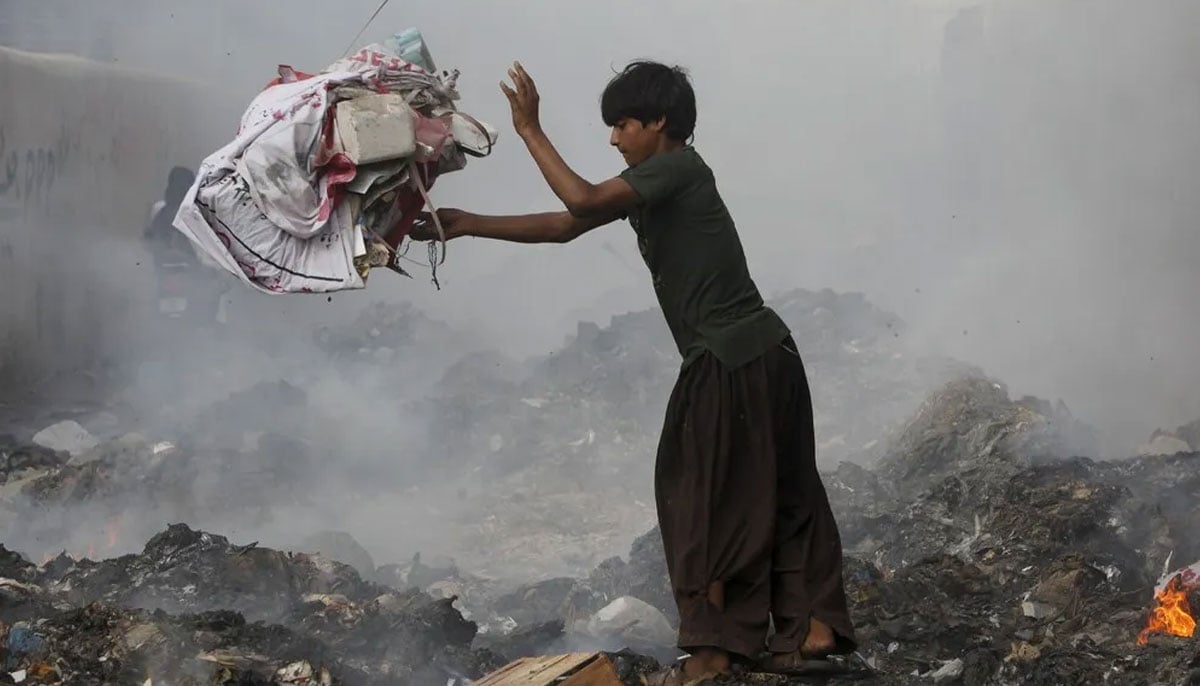
“The toxic chemicals released during garbage burning include nitrogen oxides, sulfur dioxide, volatile organic compounds (VOCs), and polycyclic organic matter (POMs). Burning plastic and treated wood also releases heavy metals and toxic chemicals, such as dioxin,” said Nawaz.
Contributing to air pollution, which is already lethal to human well-being, these fumes also take a hefty toll on soil and water resources when the ashes and residues settle, leading to respiratory illnesses, cardiovascular diseases, and even increasing cancer rates in communities exposed to such pollutants.
The United Nations Environment Programme (UNEP) says: “The burning of plastics releases toxic gases like dioxins, furans, mercury, and polychlorinated biphenyls (better known as PCBs) into the atmosphere, posing a threat to vegetation, and human and animal health.”
“Dioxins settle on crops and in our waterways, eventually entering our food and hence our bodies. These dioxins are potentially lethal persistent organic pollutants that can cause cancer and disrupt thyroid and respiratory systems,” the UNEP report added.
Given that, the rise in cancer and other major diseases in the country over the past few years could be attributed to these pollutants.
How does plastic contribute to garbage pollution?
It is universally accepted that garbage is mostly composed of various types of plastic from consumer-centric producers catering to both edible and non-edible necessities.
While green initiatives and the allotment of green spaces for reforestation have the potential to mitigate air pollution, absorb carbon dioxide, and provide respiratory relief to residents in polluted urban centres, support from industrial tycoons would benefit the environment more than any other element or initiative.
Yasir Husain, Director of the Climate Action Centre Karachi, Founder of Darya Lab, and an environmental activist, said: “We must target the packaging industry, as they are responsible for most of the plastic-based waste, which is either left unrecycled or burnt.”
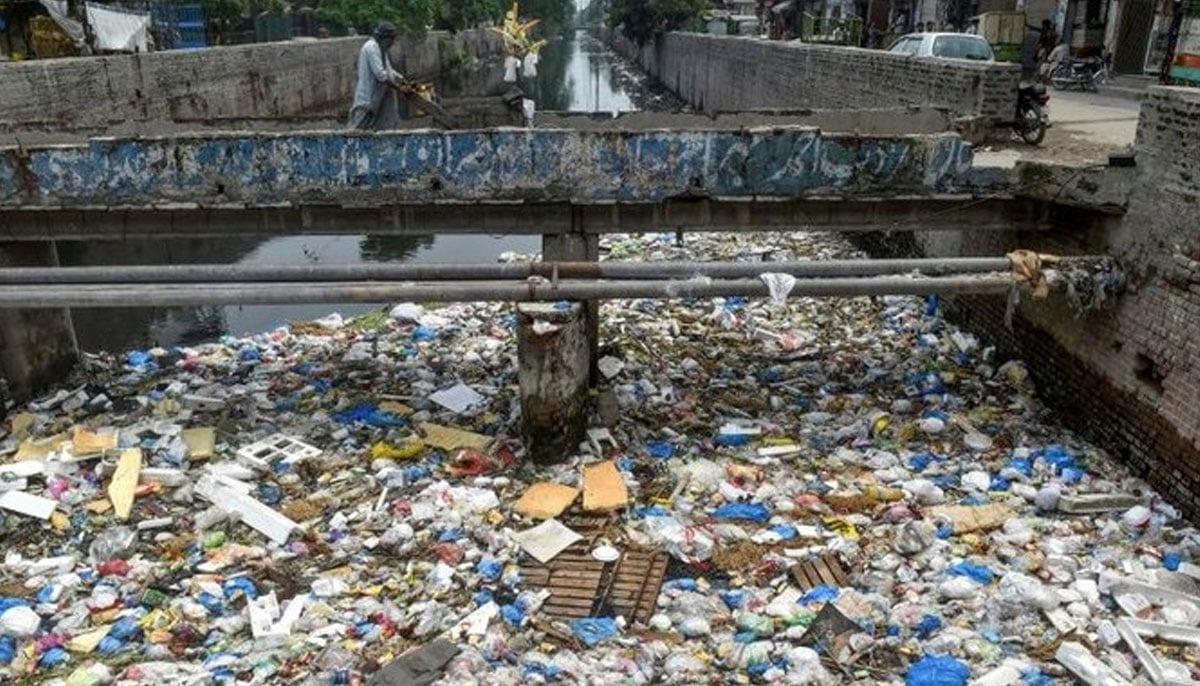
He urges that industry bigwigs must switch to “green packaging and biodegradable packaging” so that streets, rivers and out waterways remain clear of industrially produced plastic waste.
Being made with materials that naturally decompose and reduce landfill waste and pollution, green and biodegradable packaging offers a sustainable alternative.
As green packaging can be repurposed or recycled, reducing waste and conserving resources, opting for green packaging can serve both the environment and Pakistan’s image as an environmentally conscious nation.
Reflecting on how could this be brought about, Husain emphasised on government’s involvement in obliging the leading industrialisers and imposing bans on the condition of noncompliance with dos and don’ts for the betterment of the environment.
Garbage burning — a crime
Much to raise eyebrows and drop jaws of ordinary citizens, burning garbage is a crime — also recognised by the law, said Husain.
Husain, an environmental activist, was of the view that if someone blatantly burns garbage, that person can lodge a first information report (FIR) against and potentially be arrested upon complaint and the provision of evidence, but since there’s a lack of awareness and education in this regard and people are not concerned about it, it goes unnoticed in ignorance.
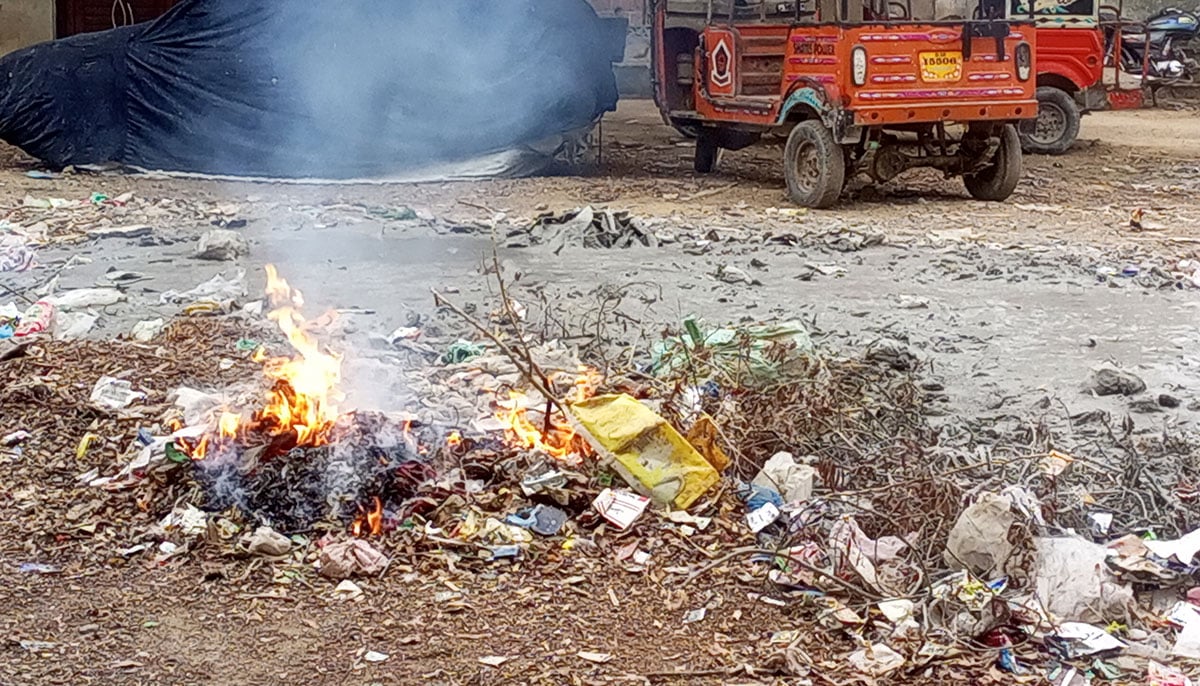
The environmental activist referred to Sections 11 and 14 of the Sindh Environmental Protection Act 2014. Owing to the replica of the federal act preceding the 18th amendment, the same sections apply to the rest of the provinces and federal capital territories but with distinct serial numbers.
Acknowledging that shopkeepers in many neighbourhoods engage in harmful practice of burning small amounts of garbage right in front of their shops instead of disposing of their waste in nearby bins, SSWMB MD said “most of the times scavengers who sift through garbage dumps are responsible for setting the remaining refuse on fire and these individuals are often dealt with through periodic enforcement actions.”.
In light of the government's disregard for addressing these environmental issues, exacerbated by a lack of public awareness and education, it is imperative for those in authority to implement robust ecological policies and invest in clean energy technologies.
By only fostering a culture of environmental responsibility and raising knowledgeable citizens can Pakistan mitigate the long-term consequences of its self-inflicted atmospheric suffering.
Syed Saif Ul Hassan is a staffer at Geo.tv. He tweets @syedsaif__
— Header and thumbnail illustration by Geo.tv



